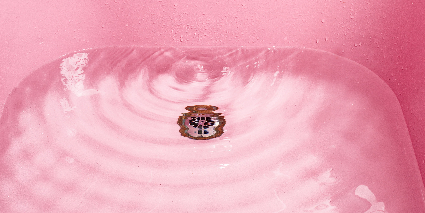(Updated June 2024) – Have you ever experienced the frustration of a clogged drain? It’s a common issue that can disrupt your daily routine and leave you feeling helpless. But fear not! In this comprehensive guide, we’ll delve into the common causes of clogged drains, from kitchen sinks to bathroom drains, and provide practical solutions to keep your plumbing flowing smoothly.
Whether you’re dealing with pesky soap scum, coffee grounds, or invasive tree roots, we’ve got you covered. Let’s dive in and bid farewell to stoppage plumbing woes once and for all.
How does the accumulation of hair contribute to bathroom drain blockages?
Hair is one of the primary culprits behind bathroom drain blockages. As water flows down the drain pipes, hair strands can become tangled and form clogs, especially in shower and bathtub drains where hair is frequently washed away. Over time, these hair blockages can impede water flow and lead to frustrating backups.
What role does grease play in causing drain clogs, and how can it be prevented?
Grease is a notorious culprit for kitchen sink clogs. When hot water flows down the drain after cooking, grease can solidify and adhere to the walls of the pipes, creating stubborn blockages. To prevent grease-related clogs, avoid pouring cooking oil or grease down the drain.
Instead, let it cool and dispose of it in the trash. Even if you don’t eat a lot of greasy foods, common household soaps can create grease of its own and, over time, start accumulating in your sewer line. Read on for a worst-case scenario involving grease and a kitchen sink.
 Are there specific items that should never be flushed down the toilet to avoid common causes of clogged drains?
Are there specific items that should never be flushed down the toilet to avoid common causes of clogged drains?
Yes, certain items should never be flushed down the toilet to prevent clogging. These include paper products other than toilet paper like paper towels, feminine hygiene products, dental floss, and small foreign objects (think kids and toys). Flushing these items can lead to blockages in the plumbing system and cause costly damage.
How do mineral deposits from hard water affect the plumbing system and lead to blockages?
Mineral deposits from hard water can accumulate in drainage systems over time, leading to reduced water flow and eventual blockages. Minerals like calcium and magnesium can form stubborn buildup inside pipes, restricting the passage of water and causing drains to flow slowly or become completely blocked.
What preventive measures can homeowners take to avoid drain clogs in their sinks and showers?
You can take several preventive measures to avoid drain clogs in sinks and showers. These include using drain strainers to catch hair and debris, avoiding pouring grease or oil down the drain, and regularly cleaning drains with hot water and vinegar to dissolve soap residue and mineral buildup.
What are the warning signs that indicate a potential drain clog, and how should they be addressed?
Warning signs of a potential drain clog include drains that flow slowly, foul odors emanating from drains, gurgling sounds, and water backups in sinks or showers. If you notice any of these signs, it’s essential to address the issue promptly to prevent further damage.
Are there DIY methods for clearing minor drain blockages, or is it advisable to seek professional assistance?
While DIY methods like using a plunger or drain snake can be effective for clearing minor drain blockages, it’s advisable to seek professional assistance for more stubborn clogs or recurring issues. Meticulous Plumbing has the expertise and tools necessary to diagnose and resolve drain problems quickly and effectively.
UN Common Causes of Clogged Drains: Horror Story
Here’s a story that we ran into some months back. On the way to an Oregon City call, we called to let her know that we were on our way, about 30 minutes away. She had used a chemical drain opener to try and clear the drain herself–a common practice with a lot of our clients. Normally, we just go through the process of cleaning the chemicals while keeping the system–and ourselves–safe.
Upon arrival, there was the unmistakable smell of rotten eggs–a smell that most plumbers do not wish to smell. It was so bad there was steam coming out of the sink. These are two things (the smell of rotten eggs and steam) no one should want to experience: this means sulfuric acid. We started taking things apart to clear the line and get the acid out of the plumbing system.
All this was happening while trying to explain why we were moving so fast, and how bad the acid could be. The garbage disposal under the sink was full of water and acid (this just keeps getting worse). We got the drain open to find that the acid had eaten part of the drain, the garbage disposal, the trap under the sink, and all of the chrome inside the sink.
When inspecting the drain cleaner, the company had put the words “safe sulfuric acid” on the bottle. This product was purchased at a very well-known grocery store. But we’re going to let you in on a little secret: there is no such thing as a “safe sulfuric acid.”
Yes, most people use drain cleaners, we see it a lot, and do not give anyone a hard time for it. We all try to do something on our own to save money, or not to have a strange person in our home. But they are bad, for a long list of reasons. Even though this story is worse than most, these cleaners, even in small amounts, do damage the drain lines.
The Main Culprit: Grease
For those who use these products for maintenance purposes, please consider this: most stoppages are the result of grease, even if you do not use grease, or eat food with grease. This happens due to the soaps we use every day. All soaps use a protein of some sort as a cleansing agent along with a lot of other stuff.
Proteins break down into grease and that grease floats on top of the water and sticks to the top of the pipe. That’s right, the stoppage usually starts at the top of the pipe and works its way down. When we put a chemical down the line, it just runs under all the stuff you are trying to get rid of.
When we have a stoppage, that’s when the grease gets in the way–down the whole length of the pipe. So the chemicals don’t always clear the line, because they can only reach the front of the stoppage, or if the water goes down. The stoppage comes back in a short time. This happens due to the chemicals just putting a hole in the grease, but not clearing the line.
When homeowners have hair stoppages, the grease, and soap get cleaned off. And we think the drain is clear until it happens again in a few weeks or months. As we said earlier, we understand why homeowners use these products, but we also think everyone needs the right information to help you understand why your drain lines aren’t working properly.
 FAQs about Common Causes of Clogged Drains
FAQs about Common Causes of Clogged Drains
How can I prevent drain clogs in my bathroom sinks?
To prevent drain clogs in bathroom sinks, use drain strainers to catch hair and debris, avoid pouring soap residue down the drain, and regularly clean drains with hot water and vinegar.
Can tree roots really cause drain blockages?
Yes, tree roots can infiltrate underground pipes and cause drain blockages by creating cracks or growing into the pipes themselves.
Is it safe to use chemical drain cleaners to clear clogs?
While chemical drain cleaners can be effective for clearing clogs, they can also damage pipes and harm the environment. It’s generally best to avoid using them and opt for safer alternatives like DIY methods or professional assistance. Read the story above for how bad it can get.
What should I do if I have a recurring drain clog problem?
If you’re experiencing recurring drain clogs, it’s essential to address the underlying issue causing the clogs. Consider reaching out to Meticulous Plumbing to diagnose the problem and recommend long-term solutions.
Clogged drains can be a headache, but understanding their common causes and implementing preventive measures can help keep your plumbing flowing smoothly. By taking proactive steps to address potential clogs and knowing when to seek professional assistance, you can avoid the frustration of stoppage plumbing and enjoy hassle-free drainage systems for years to come.
Have issues with standing water in your sinks, tubs, and showers? Call Meticulous Plumbing today and say goodbye to clogs and hello to worry-free plumbing!


